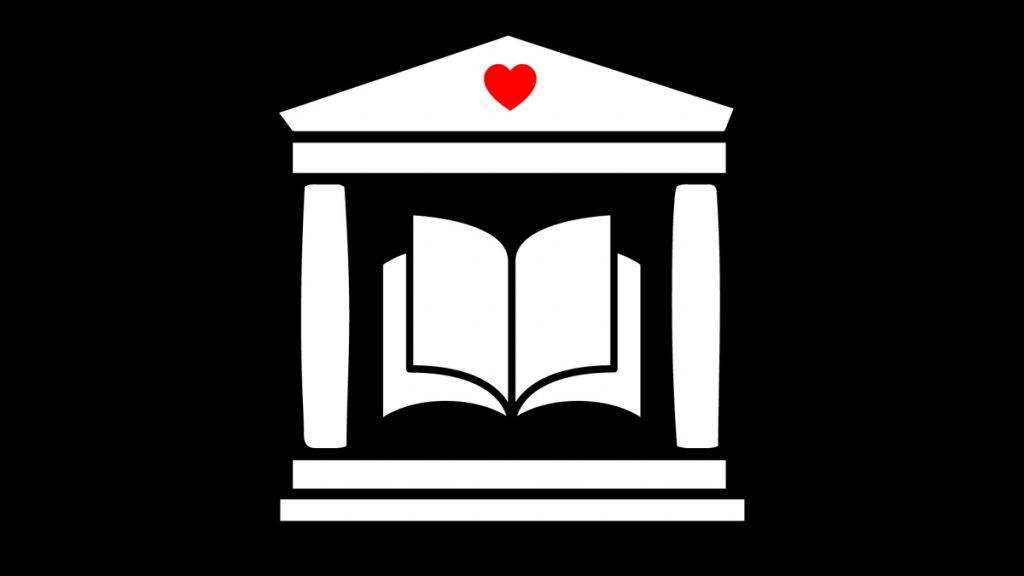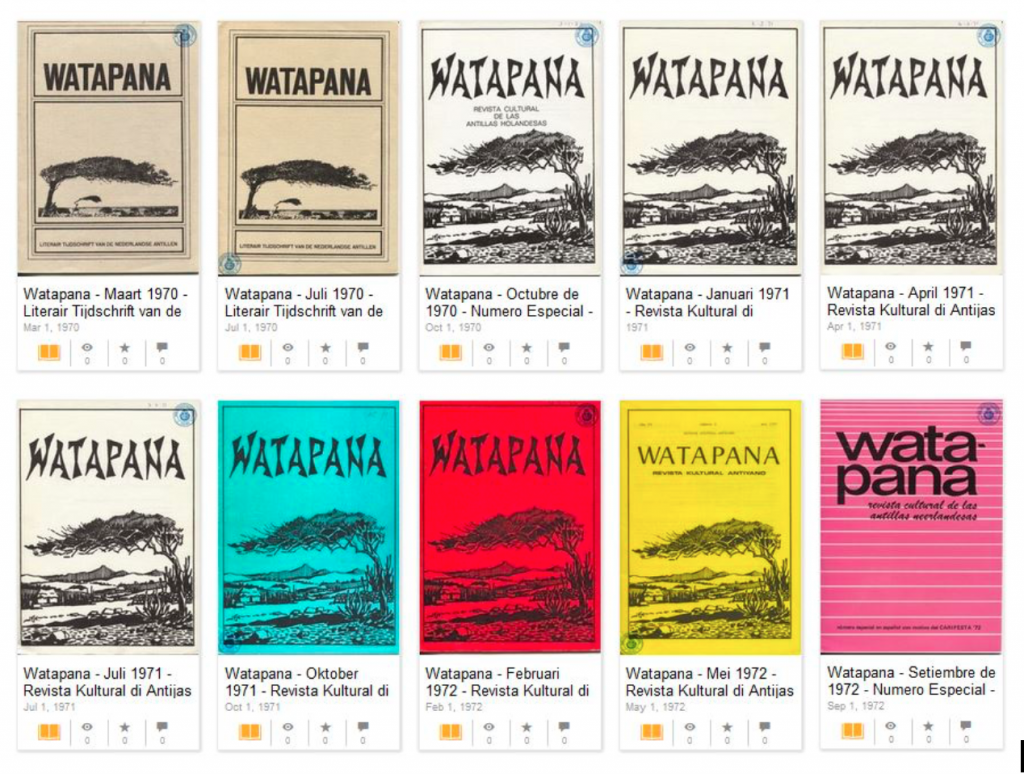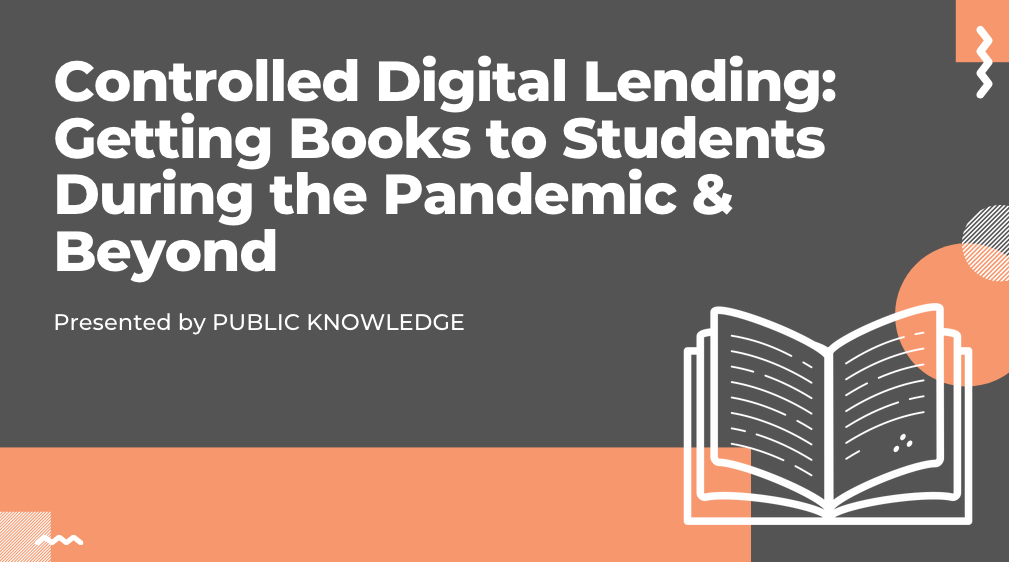
Dear Reader —
What are you reading from the National Emergency Library? Please let us know. We will not share your response unless you give explicit permission. We are thrilled so many of you have reached out to let us know how you are using the Library for research, teaching, and even personal purposes.
Below are highlights from the library world. As always, thank you for your generous support.

When An Island Shuts Down: Aruba & the National Emergency Library. On March 15, the small island nation of Aruba had its businesses, schools, and libraries close to stop the spread of COVID-19. And like so many others, librarians began to wonder how they would find the appropriate books needed, especially for students. Our team spoke with Dr. Peter Scholing, who leads the digitization effort at the National Library of Aruba, about how the National Emergency Library has provided the “missing link” needed for students across the country.
A Happy Ending for Seattle’s Bop Street Records: A Nonprofit Buys Up the Entire Collection. Dave Voorhees, owner of Seattle’s Bop Street Records, announced his store was closing at the end of June. He decided to close in part because of the COVID-19 pandemic. Well, our team would like to provide some good news: we purchased the entire collection sight unseen.
Hot off the digital press! Libraries Do Not Need Permission to Lend Books: Fair Use, First Sale, and the Fallacy of Licensing Culture. Kyle K. Courtney, Copyright Advisor at Harvard Library, has published a post today covering his thoughts on licensing vs. ownership by libraries and what that means for librarians and educators in our current COVID-19 environment.
Ever Gold [Projects] & The Internet Archive Present Bay Area Emerging Visual Artist Exhibition Production Relief Grant. For the past four years, we have teamed up with Ever Gold [Projects] with help from the Kenneth Rainin Foundation in addition to individual generosity to provide a grant program to host an artist in residency exhibition. Due to the unforeseen circumstances, we had to cancel the program. However, we have decided to redirect the funds to support San Francisco Bay Area artists who have been affected by the global pandemic.
The Copyright Office Weighs in on the National Emergency Library. The United States Copyright Office (USCO) penned a reply to Senator Udall [D-NM] asking about the legality of the National Emergency Library. The Office’s response primarily focuses on general guidance for libraries and educational institutions and avoids reaching a legal conclusion or providing any specific recommendations regarding the NEL. Internet Archive Founder and Digital Librarian, Brewster Kahle responded to the letter on Twitter, please see his reply here. If you would like to contact your Member of Congress to tell them how you are using and enjoying the NEL, a state and district list can be found here.

Controlled Digital Lending: Getting Books to Students During the Pandemic & Beyond. Our friends at Public Knowledge are hosting a webinar on May 22nd about controlled digital lending. The webinar will be moderated by Public Knowledge Counsel Meredith Rose, who will be joined by Cory Doctorow, author of Radicalized and Walkaway, special advisor to the Electronic Frontier Foundation, and visiting professor of practice in library science at University of North Carolina Chapel Hill; Chris Freeland, Director of Open Libraries at the Internet Archive; Lisa Petrides, Founder and CEO of Institute for the Study of Knowledge Management in Education; and Lisa Weaver, Director, Collections & Program Development at Hamilton Public Library.
Other Webinars and Events. If you’re interested in learning how libraries can use controlled digital lending in addition to the temporary National Emergency Library, please join Chris Freeland, Director of Open Libraries, who will be leading a series of webinars on this topic. Freeland will explain how the Internet Archive works: from scanning book centers to how books are made available online. Check here for webinar dates.
ICYMI: We have a Medium channel. In case you ever miss a blog on our website, you can find them here.
What YOU Are Saying About the National Emergency Library: Our team has been soliciting input on the National Emergency Library. Below are a handful of testimonials from across the education and library sectors. We only use testimonials for which we have explicit permission. If you would like to be featured in our next newsletter, please submit a testimonial.
Note: We have NOT substantially changed the testimonials, if you notice your testimonial looks a little different, it is just for readability purposes. Thank you for submitting.
Mike M., Pine Grove, Pennsylvania, Researcher:
Mike is a researcher who has been using the National Emergency Library for personal research purposes in the fields of genealogy and art history. He called the NEL “awesome.”
Don’t forget to keep up with updates from the Internet Archive team by following us on Twitter and visiting our website.

Surely the good people of Aruba don’t understand that they are contributing to a huge copyright infringement scheme by using the national emergency library. The national emergency library has abandoned the CDL approach during the current pandemic crisis and is actively harming authors.
It’s super interesting! Awesome! Great article!
Yes, that’s great
i Dont know about national library, but i came here just to tell that you guys are doing a phenominal work, i love your website archive good job.
i came here just to tell that you guys are doing a phenominal work, i love your website archive good job
The national emergency library has abandoned the CDL approach during the current pandemic crisis and is actively harming authors.
How, exactly, does the NEL harm authors?
(I think that is a fair question, seeing as how it is incumbent upon the person making an assertion to prove that assertion is correct in actuality.)
Jack El-Hai has been brainwashed by copyright maximalists. These self-interested monopolists want to destroy the culture while claiming to protect it. The copyright law does not make libraries illegal; on the contrary, it explicitly legalizes the resale or lending of any copyrighted work after its first sale, without the permission nor control of the author or publisher. If you take apart the arguments of places like the Author’s Guild, they imply (without ever baldly stating) that the ONLY way for libraries to lend out e-books is not to buy the books, but to get a “license” and pay more every time the book is lent out. The whole point of their “license” system is to avoid the publisher ever making a “sale” because, under the copyright law that they claim to love, they know that the law says a sale ends their copyright on that particular copy. So they have to argue that when they actually do “sell” a physical book to a library, the library is not free to lend out digital copies, because… because why? Because they desperately wish the copyright law said something different than what it actually says.